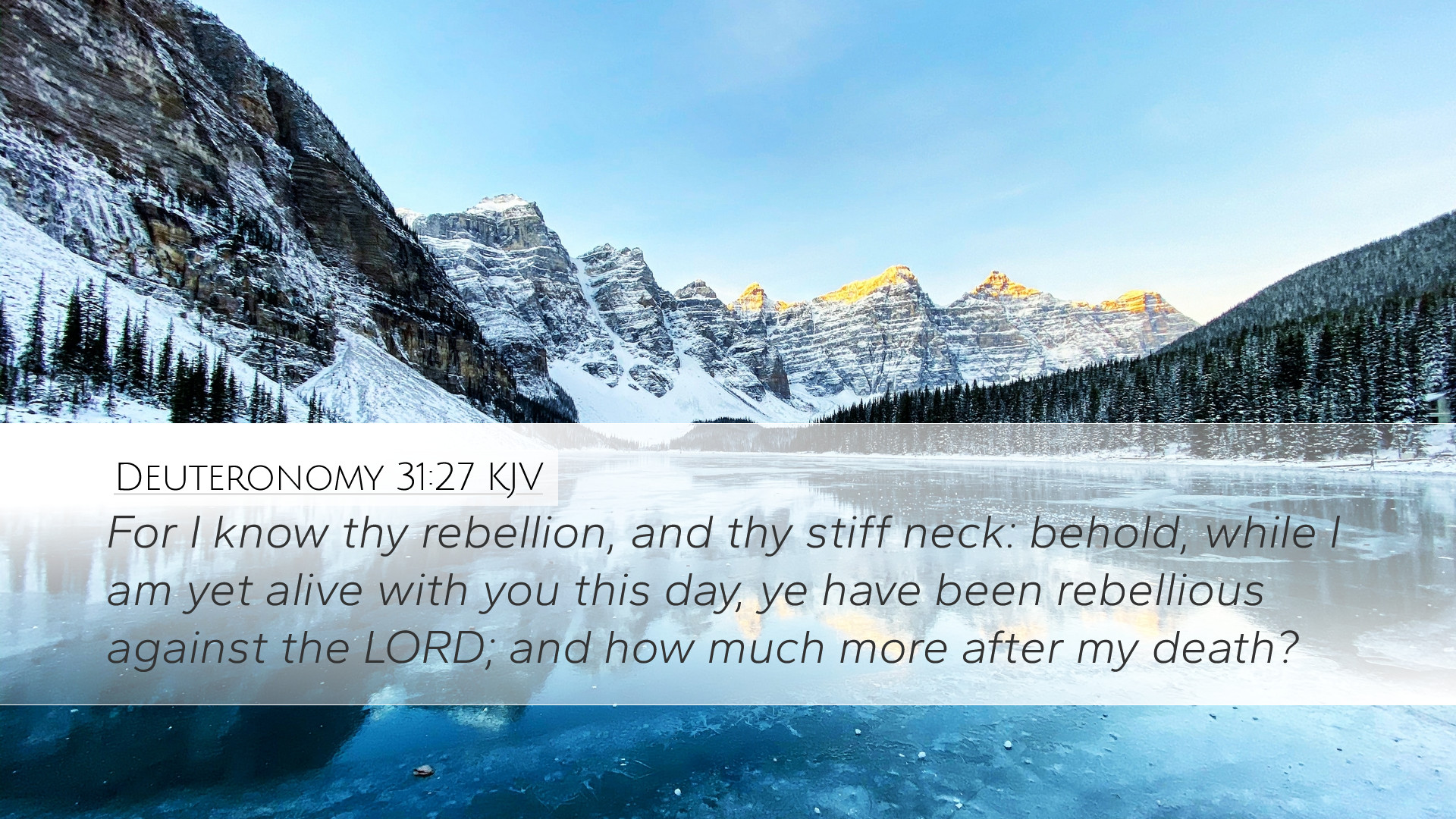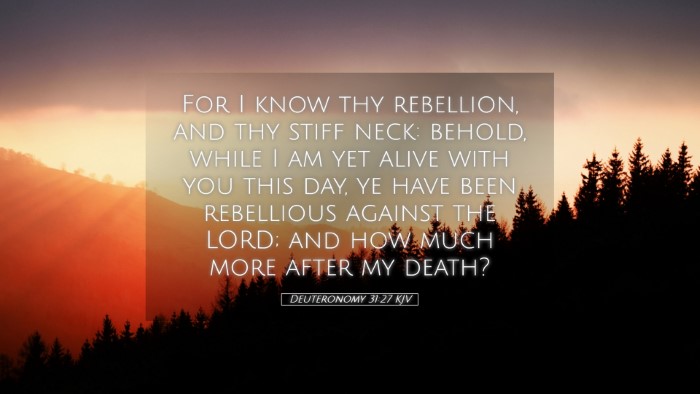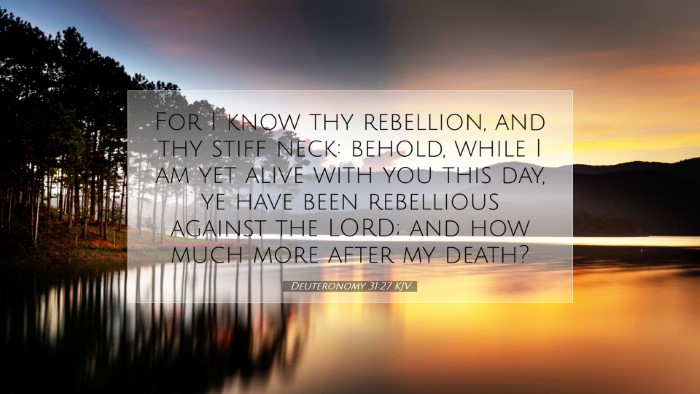Commentary on Deuteronomy 31:27
Verse: "For I know thy rebellion, and thy stiff neck: behold, while I am yet alive with you this day, ye have been rebellious against the Lord; and how much more after my death?" (Deuteronomy 31:27 KJV)
Introduction
The verse is part of Moses' farewell address to the Israelites, where he warns them about their rebellious nature. Throughout this chapter, Moses is preparing to hand over leadership to Joshua, emphasizing the need for obedience to God's covenant. This particular verse captures the tension between Moses' leadership and the people's propensity for disobedience.
Contextual Analysis
This verse is situated within a larger narrative where Moses, having led the Israelites through the wilderness for forty years, acknowledges the likely future disobedience of the people. As he speaks, it is evident that he understands both their past behavior and the human inclination towards rebellion.
1. Historical Context: Moses refers to the Israelites' history of rebellion against God's commands, taking them through a pedagogical method to instill obedience.
2. Theological Reflection: This acknowledgment serves as a warning not only about their past behaviors but also about the implications of their future actions after Moses' death.
Insights from Commentators
Matthew Henry:
Henry emphasizes the importance of Moses’ role as a leader. He notes that Moses was keenly aware of the people’s shortcomings and their history of disobedience. His statement “I know thy rebellion” indicates that the awareness of sin is crucial for true repentance. Moses’ fears were not merely a reflection of his doubts about their capabilities but rather rooted in a deep understanding of human nature and the persistent struggle against sin.
Albert Barnes:
Barnes elaborates on the phrase “while I am yet alive,” suggesting that Moses was keenly aware of the times ahead where guidance would be absent in his physical absence. He articulates that Moses was not simply prophesying doom but was calling to the people's remembrance, urging them to adhere to the covenant consistently even after his leadership ends. This forms a critical link indicating that leadership must not solely rest on human beings but on the reliance upon God’s Word.
Adam Clarke:
Clarke argues that Moses foresaw the inevitable disobedience of the Israelites despite knowing the consequences of their rebellion. He highlights that the idea of “stiff neck” symbolizes stubbornness and a refusal to submit to God’s instructions. This imagery calls believers today to self-reflection regarding their own rigidity in matters of faith and obedience.
Thematic Elements
- Rebellion: The repeated mention of rebellion signifies a central theme, urging an understanding of how sin manifests in Israel's journey.
- Leadership and Accountability: Moses’ foresight into the hearts of the people underscores the concept of responsible leadership and the accountability shared among the community of believers.
- Covenant Relationship: This passage illustrates the seriousness of the covenant relationship and the dire consequences that stem from infidelity to God’s word.
Application and Reflection
This verse calls for introspection among pastors, students, and scholars. The acknowledgment by Moses of rebelliousness serves as a timeless advisory for communities of faith. How do we respond to our own rebellious tendencies, and what mechanisms can we put into practice to ensure we carry out our covenant with God faithfully?
For Pastors: This text serves as a reminder that leadership is fraught with challenges arising from the congregation’s spiritual state. Pastors are encouraged to cultivate a culture of openness regarding sin and foster a genuine relationship with God among their congregants.
For Students and Theologians: The verse emphasizes the importance of studying the nature of humanity as it relates to divine expectations, enabling a deeper understanding of historical theology and its practical applications.
Conclusion
Deuteronomy 31:27 provides a profound look at the human condition as seen through the lens of Moses' experience with the Israelites. It challenges every generation to examine the steadfastness of their commitment to God amidst the temptations and trials that lead to rebellion. The insights from various commentators enrich our understanding and application of this text, urging us forward in faithful adherence to God’s commands.


